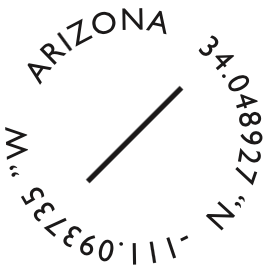Selling a house involves more than listing it and handing over the keys. While much attention focuses on pricing and negotiations, closing costs play a significant role in the process. These expenses, often overlooked, can impact your bottom line and shape your financial expectations. Understanding the various components of closing costs ensures clarity, prevents surprises, and helps you prepare for a successful transaction.

Defining Closing Costs and Why They Matter
Closing costs are the fees and expenses paid at the conclusion of a real estate transaction. For sellers, these costs typically come from the proceeds of the home sale. Depending on the specifics of the sale, closing costs can include a variety of charges, from agent commissions to local taxes.
Real estate commissions often form the most significant portion of closing costs. Sellers usually pay a percentage of the sale price, split between the listing agent and the buyer’s agent. Other common expenses include title insurance, which protects against claims on the property, and escrow fees, covering the costs of managing the financial aspects of the sale.
Local fees, such as transfer taxes or recording fees, also contribute to closing costs. These vary by location and are based on state or municipal requirements. Homeowners’ associations (HOAs) may charge transfer fees, especially in communities with shared amenities.
Understanding these costs provides sellers with a clear picture of the financial responsibilities involved. Preparing for these expenses in advance ensures that proceeds from the sale align with expectations, making the transition to your next chapter seamless and stress-free.
Real Estate Commissions: The Largest Slice of Closing Costs
Real estate agent commissions are typically the most substantial component of a seller’s closing costs. These fees, often 5% to 6% of the final sale price, are usually split between the listing agent and the buyer’s agent. For a property selling at $300,000, commissions could range from $15,000 to $18,000, significantly impacting the seller’s net proceeds.
This percentage-based fee covers the services provided by both agents, including marketing, negotiations, and guiding the transaction through closing. The listing agent’s expertise in pricing, staging, and attracting potential buyers is crucial for maximizing the home’s value. Meanwhile, the buyer’s agent works to ensure the buyer feels confident in their purchase.
Some sellers may explore alternatives, such as discount brokerages or selling the property without an agent. While these options may reduce commission costs, they often require additional time and effort from the seller. Balancing potential savings with the professional support agents provide is a key consideration.
Although commissions represent a significant cost, they are an investment in ensuring a smooth sale and achieving a competitive price for the property. Working with experienced agents who understand the local market can make a substantial difference in your bottom line, justifying the associated expense.
Title Insurance and Escrow Fees: Protecting the Transaction
Title insurance and escrow fees are essential components of closing costs that safeguard the transaction for both the buyer and seller. Title insurance protects against potential legal disputes over ownership claims, while escrow fees ensure the secure handling of funds and documents throughout the sale.
Sellers typically pay for the owner’s title insurance policy, which guarantees that the title is clear of liens or other claims. The cost of this policy depends on the sale price and local regulations but typically ranges from a few hundred to a few thousand dollars.
Escrow fees cover the services provided by a neutral third party that manages the financial and legal aspects of the sale. This includes holding the buyer’s deposit, ensuring funds are disbursed correctly, and facilitating the recording of documents. Escrow fees are usually split between the buyer and seller, although practices vary by location.
Together, these costs ensure that the sale proceeds smoothly and that both parties are protected from potential risks. Sellers benefit from the assurance that the transaction will close without legal complications, allowing them to focus confidently on their next steps.
Transfer Taxes and Recording Fees: Meeting Local Requirements
Transfer taxes and recording fees are government-imposed costs that vary by jurisdiction. Though often smaller than commissions or title insurance, these expenses are important to account for when calculating closing costs.
Transfer taxes are assessed when property ownership changes hands. The amount is typically a percentage of the sale price, with rates varying by state, county, and even municipality. In some cases, sellers and buyers may negotiate who is responsible for this tax, but it often falls on the seller.
Recording fees cover the cost of updating public records to reflect the change in ownership. These fees are generally modest, often amounting to a few hundred dollars, but they are necessary to complete the transaction legally.
Understanding these local fees in advance helps sellers budget accurately. Consulting with your real estate agent or title company ensures clarity on what applies to your transaction, preventing unexpected deductions from your proceeds at closing.
Prepayment Penalties and Remaining Mortgage Balance
For sellers with an outstanding mortgage, the loan balance and any potential prepayment penalties must be addressed during the closing process. These costs directly impact the net proceeds from the sale and should be considered when selling.
The remaining mortgage balance is typically paid off from the sale proceeds, with the escrow company ensuring that the lender receives the necessary funds. Sellers should obtain a mortgage payoff statement from their lender before listing the property to understand the exact amount owed.
In some cases, lenders impose prepayment penalties for paying off a mortgage early, especially if the loan was taken out recently. These penalties compensate lenders for lost interest and can range from a few hundred dollars to several thousand.
Understanding these obligations before listing your home ensures there are no surprises at closing. Factoring in the remaining balance and any penalties helps set realistic expectations for your financial outcome.
Additional Costs: HOA Fees, Repairs, and Utilities
Sellers may encounter other closing-related costs, such as homeowners association (HOA) fees, repair expenses, and utility payments. While these costs may not always be significant, they can add up and should be factored into the overall budget.
HOA fees often include transfer charges when a property changes hands. These fees vary depending on the HOA and its rules but typically cover administrative costs associated with updating ownership records.
Repairs requested during the buyer’s inspection can also impact closing costs. Sellers may agree to make repairs or provide credit to the buyer to address specific issues. Conducting a pre-inspection to prepare for these potential expenses can help identify and address problems early.
Lastly, ensuring all utility bills are paid by the closing date prevents transaction delays. Coordinating final readings and payments with utility providers ensures a smooth transfer of services to the new owner.
These additional costs highlight the importance of thorough preparation when selling a home. Addressing these factors early minimizes stress and ensures the closing process proceeds without unexpected hurdles.
Preparing for a Successful Sale
Understanding closing costs is essential to selling a home. By familiarizing yourself with the expenses involved, you can plan effectively and maximize your net proceeds. If you’re ready to discuss the next steps in selling your property, contact me to explore how I can help streamline the process and achieve your goals.


